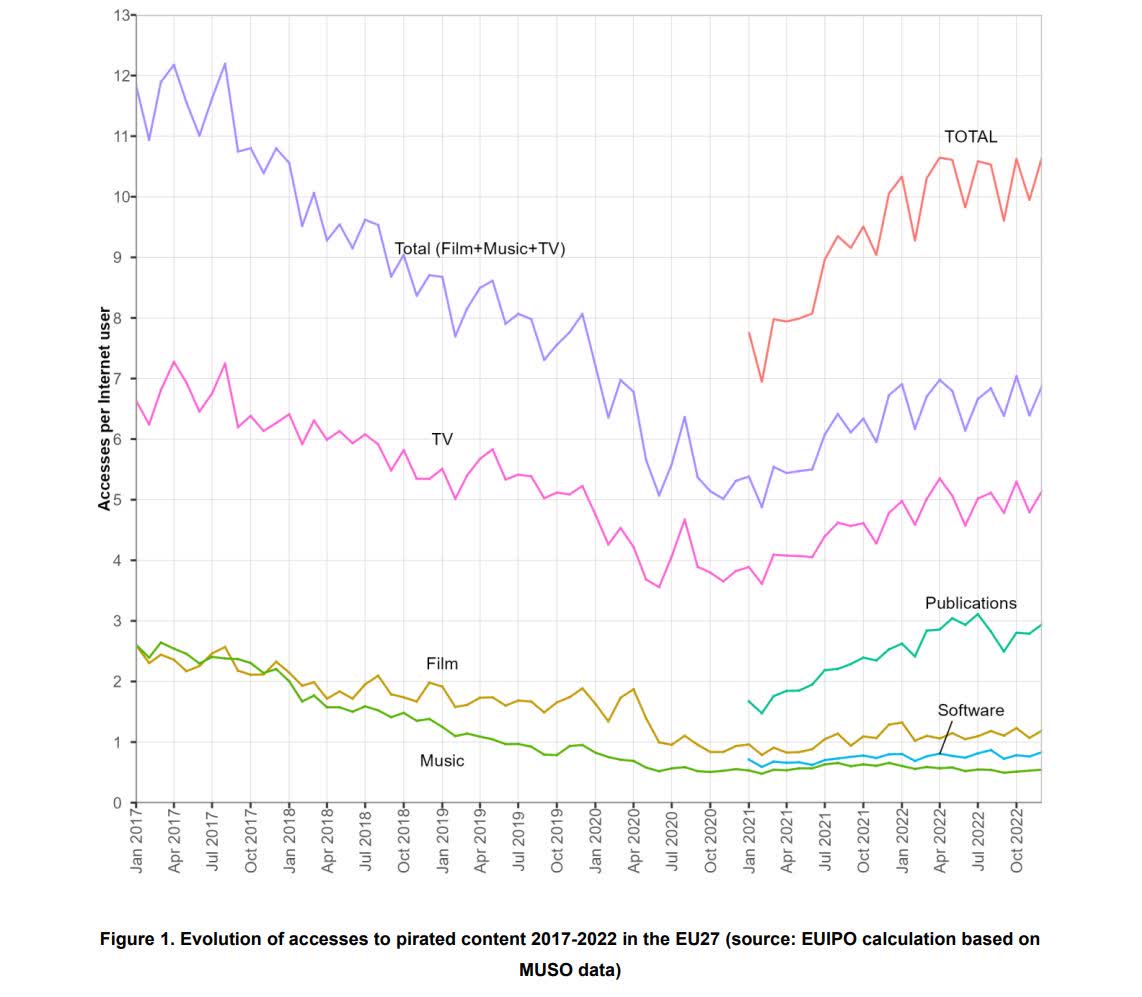A hot potato: Charles Rivkin, chairman and CEO of the Motion Picture Association isn't a fan of pirates. He says many of those who operate piracy websites are "real-life mobsters" who engage in child pornography, drug trafficking, and other crimes. He has also announced that the MPA plans to work with Congress to introduce legislation that blocks pirate websites in the United States.
Speaking during CinemaCon in Las Vegas, Rivkin said of pirate site operators, "Remember – these aren't teenagers playing an elaborate prank!"
"The perpetrators are real-life mobsters … organized crime syndicates – many of whom engage in child pornography, prostitution, drug trafficking, and so many other societal ills!" he added, reports Deadline. "They operate websites that draw in millions of unsuspecting viewers whose personal data can then fall prey to malware and hackers."
Rivkin spoke about the impact piracy has in the US, claiming it costs hundreds of thousands of jobs, steals tens of billions of dollars from the economy and more than one billion dollars in theatrical ticket sales.
The chairman's tirade could be prompted by the uptick in piracy that has been happening for a few years now. In Europe, piracy fell during the lockdowns before shooting back up. Globally, the practice is up 12% since 2019, with the US and India behind the majority of the 141 billion visits to piracy websites in 2023. There's little doubt that the massive increase in the cost of streaming services has played a big part in people turning to piracy.
Rivkin noted that 60 other countries use site-blocking tools in their battle against piracy. He said the only reason the US doesn't do it is the "lack of political will, paired with outdated understandings of what site-blocking actually is, how it functions, and who it affects."
The rule, if introduced, would mean film and television producers, music and book publishers, sports leagues, and broadcasters could ask courts to order ISPs to block websites that host and share pirated content. Rivkin said that detailed evidence would need to be provided to ensure a site is engaged in illegal piracy and that operators can appear in court to defend themselves.
Rivkin referenced illegal streamer FMovies as an example of how site blocking could impact piracy website traffic. Other nations passed legislation that has blocked access to the site, but it still attracts 160 million visits per month, a third of which comes from the US.
"Imagine if those viewers couldn't find pirated versions of films through a basic internet search. Imagine if they could only watch the latest great movies when they're released in their intended destinations: your theaters," he said.
"If we had site-blocking in place, we wouldn't have to imagine it. We'd have another tool to make that real."
An attempt by the MPA to restrict access to piracy websites in 2012 via the Stop Online Piracy Act (SOPA) failed after the bill was dropped over fears it would violate free speech. Speaking about SOPA, Rivkin said, "real-world experience proved those dire predictions wrong. Examples of free speech violations are practically non-existent."
"And even if Members of Congress can't seem to agree on much these days, surely they can find common ground on action to protect American businesses, defend American workers, and strengthen our public safety."

